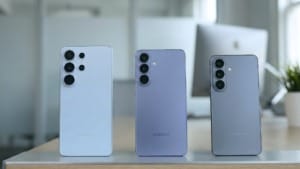TikTok owner ByteDance and DeepSeek advance AI reasoning in China
ByteDance and DeepSeek challenge OpenAI with affordable and advanced AI reasoning models, showcasing China's growing influence in artificial intelligence.

The global competition to develop advanced artificial intelligence (AI) reasoning models is intensifying as TikTok owner ByteDance and Chinese AI startup DeepSeek make significant progress in challenging OpenAI’s dominance.
Table Of Content
On Wednesday, ByteDance introduced an upgraded version of its flagship AI model, Doubao-1.5-pro. The company claims this model surpasses OpenAI’s o1 in AIME, a key benchmark for evaluating how well AI systems understand and process complex instructions. This launch reflects ByteDance’s intent to rival Microsoft-backed OpenAI’s cutting-edge reasoning models.
DeepSeek unveils competitive model
DeepSeek made waves in the AI community by launching its open-source reasoning model, DeepSeek-R1, last Monday. According to the company, DeepSeek-R1 matches OpenAI’s o1 on several performance benchmarks, offering a compelling alternative in the AI reasoning space.
Last month, DeepSeek’s V3 large language model outperformed OpenAI and Meta’s in various tests despite the company operating on a smaller development budget. Additionally, DeepSeek plans to charge significantly lower fees for its models, which could shake up the competitive landscape.
In comparison, DeepSeek-R1 is priced at 16 yuan (US$2.20) per million tokens, far below OpenAI’s o1, which costs 438 yuan (approximately US$60) for the same usage. ByteDance has taken an even more aggressive pricing approach, with Doubao-1.5-pro-32k costing just 2 yuan (US$0.27) per million tokens, while the more advanced Doubao-1.5-pro-256k version is available for 9 yuan (US$1.23). These competitive prices reflect the increasing affordability of AI reasoning tools in the Chinese market.
Chinese firms step up AI innovation
ByteDance and DeepSeek are not the only Chinese companies driving AI advancements. Other players, including Moonshot AI, Minimax, and iFlyTek, have recently unveiled their reasoning models. These innovations pose a growing challenge to the market share of established global AI leaders such as OpenAI.
The push to develop reasoning AI intensified following OpenAI’s launch of ChatGPT in November 2022. In September 2023, OpenAI introduced its “Strawberry” series of reasoning models, which marked a significant leap in tackling complex problems in science, coding, and mathematics.
OpenAI CEO Sam Altman recently announced that a new model, o3 mini, would be ready for release in the coming weeks. However, ByteDance’s Doubao-1.5-pro and DeepSeek-R1 are already gaining attention for their competitive performance and affordability.
A new era in AI development
The rapid advancements in AI reasoning models from ByteDance, DeepSeek, and other Chinese companies highlight China’s growing influence in artificial intelligence. With competitive pricing and performance, these firms are positioning themselves as serious contenders in the global AI landscape.
As the development continues, users worldwide stand to benefit from improved accessibility to advanced AI reasoning tools at lower costs. For ByteDance and DeepSeek, these innovations mark a bold step towards reshaping the future of AI technology.
















